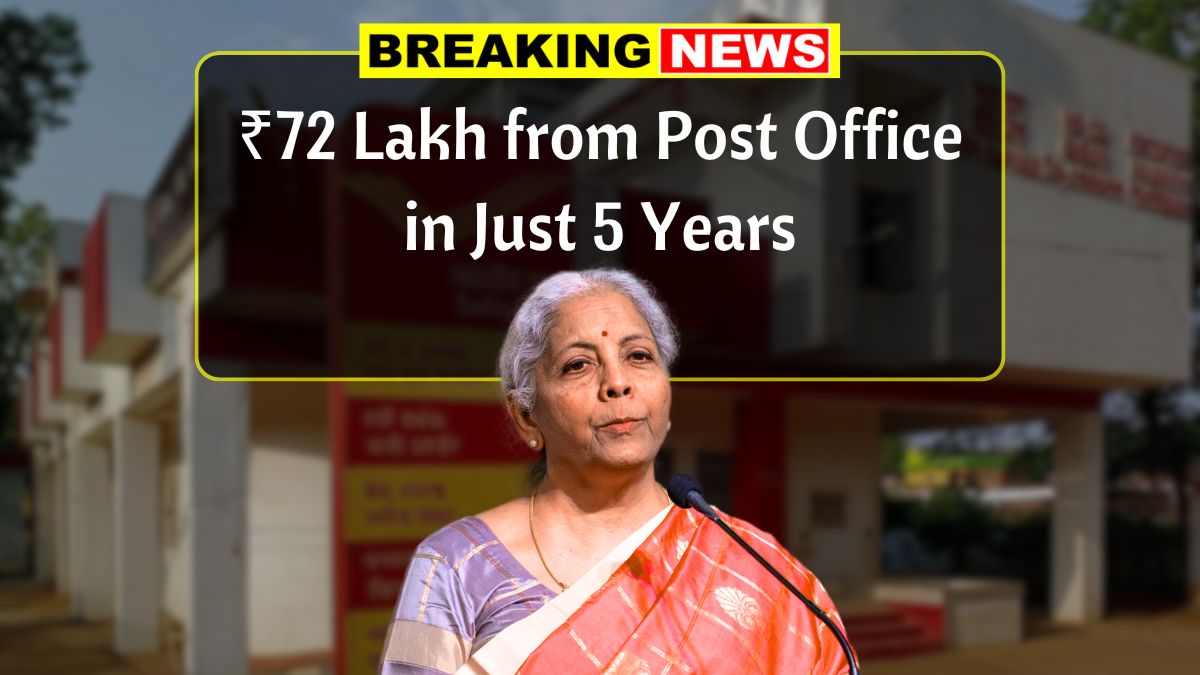Govt New Pension Rule – Here’s some exciting news for government employees in India. The central government has introduced a new pension rule that’s turning heads. According to this new policy, any permanent government employee who completes 10 years of continuous service can now receive 50 percent of their last drawn salary as pension. Yes, you heard that right — no need to wait for 20 or 30 years anymore. Just 10 years of dedicated service and you could be eligible for half your last salary as monthly pension.
Let’s break it down in simple terms and see what this new rule is all about.
What’s New in the Pension Scheme?
Traditionally, government pension schemes required longer service durations — often 20 years or more — before an employee could receive any pension benefits. But now, the new rule has significantly reduced the minimum service requirement to just 10 years. This means more employees will qualify for pension, and that too at a fairly early stage of their careers.
Under this rule:
- You will receive 50 percent of your final salary as pension every month.
- You only need to complete 10 years of service.
- The scheme applies only to permanent government employees.
- The pension will be calculated based on your last basic pay.
- There’s no specific age limit mentioned, so once you hit the 10-year mark, you can apply.
Who is Eligible?
To qualify for this pension benefit, here are the main conditions:
- You must be a full-time, permanent government employee.
- You need to have completed at least 10 years of continuous service.
- Your contributions towards pension (if required as per your job terms) should be up to date.
- You’ll need to submit proper service records and complete paperwork.
Temporary or contract workers are not covered under this rule.
How to Apply for the Pension?
Applying for the pension is a simple process. Here’s how you can go about it:
- Reach out to your HR or administrative department. They’ll give you the necessary forms and guide you through the process.
- Gather and submit your service-related documents. This includes proof of your employment history, appointment letters, and records of service.
- Fill out the official pension form with correct information.
- Make sure all your dues and contributions are cleared before you submit the application.
Once everything is verified, your pension request will be processed by the concerned government department.
Why This Rule Matters
There are several reasons why this pension rule is being praised:
- Financial Security: Government employees can now retire or resign with confidence, knowing they’ll still have a decent monthly income.
- Better Job Satisfaction: When employees know their future is secure, they tend to be more focused and loyal.
- Improved Retention: This move encourages people to stick around for at least 10 years.
- More Competitive: It helps the government attract fresh talent who might have otherwise gone to the private sector.
A Look Back: Old vs. New Pension Rules
Here’s a quick comparison between the old and new pension rules:
| Feature | Old Pension Rule | New Pension Rule |
|---|---|---|
| Minimum Service | 15 to 20 years | 10 years |
| Pension Amount | 30 to 40 percent of salary | 50 percent of salary |
| Flexibility | Limited | Improved |
| Documentation | Complex | Streamlined |
| Accessibility | Restricted | More inclusive |
Clearly, the new system is designed to be more employee-friendly.
This new pension scheme is a major step toward strengthening job security for government workers. It provides a decent retirement cushion after just a decade of service. That’s a big deal, especially for those who may not plan to work in government jobs for 30 or 40 years.
Here are a few key takeaways:
- Keep your service records updated and accurate.
- Stay in touch with HR and monitor your contributions.
- Ask questions and stay informed about future updates.
- Make sure your paperwork is complete when you apply.
With such a policy in place, government jobs are becoming even more attractive. If you’re a government employee or planning to join, this rule could make a big difference in your future planning. It’s another step towards rewarding the people who serve the country with stability, dignity, and long-term financial support.














